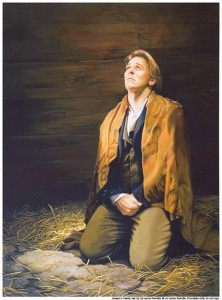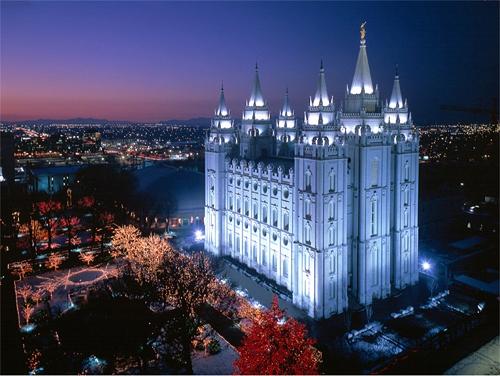This Martin Luther King Day I reflected on the work Dr. King did in “cashing the check” promised to all in the Declaration of Independence and in the Constitution. Even though for African Americans the promissory note had bounced, King still had faith in America:
“We refuse to believe that the bank of justice is bankrupt. We refuse to believe that there are insufficient funds in the great vaults of opportunity of this nation. So we have come to cash this check—a check that will give us upon demand the riches of freedom and the security of justice. … Now is the time to open the doors of opportunity to all of God’s children.” (I Have A Dream)
 King’s message was one of , since tolerance is the gateway to opportunity and justice. America needs tolerance for all races—all of God’s children—in order to live up to her ideals. Fortunately, King was not alone in his quest for tolerance.
King’s message was one of , since tolerance is the gateway to opportunity and justice. America needs tolerance for all races—all of God’s children—in order to live up to her ideals. Fortunately, King was not alone in his quest for tolerance.
Joseph Smith, the founding prophet of the Mormon Church also believed in tolerance. As a victim of prejudice himself, he knew what it was like to be misunderstood, abused, and even imprisoned for his beliefs. He understood that hatred knows no bounds and that it blurs all distinctions. When one person is persecuted, then we all are persecuted.
Joseph Smith said:
“The Saints can testify whether I am willing to lay down my life for my brethren. If it has been demonstrated that I have been willing to die for a ‘Mormon,’ I am bold to declare before Heaven that I am just as ready to die in defending the rights of a Presbyterian, a Baptist, or a good man of any other denomination; for the same principle which would trample upon the rights of the Latter-day Saints would trample upon the rights of the Roman Catholics, or of any other denomination who may be unpopular and too weak to defend themselves.” (“Chapter 29: Living with Others in Peace and Harmony,” Teachings of Presidents of the Church: Joseph Smith, [2007], 339–48.)
That is a high standard, but sad experience has taught us that tolerance must be so exacting. We are all familiar with Pastor Martin Niemöller’s poem “First they came …” That poem outlines the incremental Nazi persecutions. They did not subjugate Germany in one fell swoop, but started imprisoning various minority groups one at a time—first the communists, then the social democrats, then the trade unionists, then the Jews, and finally when they came after Niemöller, there was no one left to speak out for him.
Joseph Smith took this principle of tolerance to heart because, more often that not, he and the Mormons were usually in the first group to be carted off. The wisdom learned from all of this is that we can take a stand at the first sign of tyranny, and nip it off at the bud. But sadly, the first steps of tyranny begin with casual or indifferent attitudes towards others.
Let me explain. I am an expatriated Californian, a transplant to Utah. So growing up most of my friends were not Mormons, and all of my teachers were not Mormons. So by force of circumstance, I had to be tolerant. I am grateful for this experience, since it habituated me to be open to people of different backgrounds. I learned how to get along and be tolerant of others.
This idea of inclusiveness, which began with Joseph Smith, is still taught today in the Mormon Church. Elder M. Russell Ballard, one of the church’s apostles, taught that inclusiveness starts with the small things.
He suggested:
“Get to know your neighbors. Learn about their families, their work, their views. Get together with them, if they are willing, and do so without being pushy and without any ulterior motives. Friendship should never be offered as a means to an end; it can and should be an end unto itself. … Let us cultivate meaningful relationships of mutual trust and understanding with people from different backgrounds and beliefs.” (M. Russell Ballard, “Doctrine of Inclusion,” Ensign, Nov 2001, 35.)
Of course Mormons will always talk about their faith, but it must be done gently, and without coercion. Wilford Woodruff, the fourth president of the Mormon Church, remembered Joseph Smith teaching that everyone must choose for themselves in matters of religion:
“I have heard the Prophet Joseph Smith say on several occasions when speaking on the agency of man, and the liberty and rights of men, that if he were emperor of the earth, having control of the whole human family, he would give every man, woman and child the right to worship God according to the dictates of their own conscience, leaving them to be responsible alone to their Creator for their individual acts.” (The Discourses of Wilford Woodruff, 9)
Mormons believe that all are alike unto God. Even though we have differing ideas and beliefs, there still must be harmony between members of the Mormon Church, and those of other faiths. We Mormons still remember what it was like to be the outcast, and that memory should soften our hearts when we deal with people not of our faith. It is not mere tolerance, but a tolerance mixed with pure love.
About kendalbhunter
Twitter •


